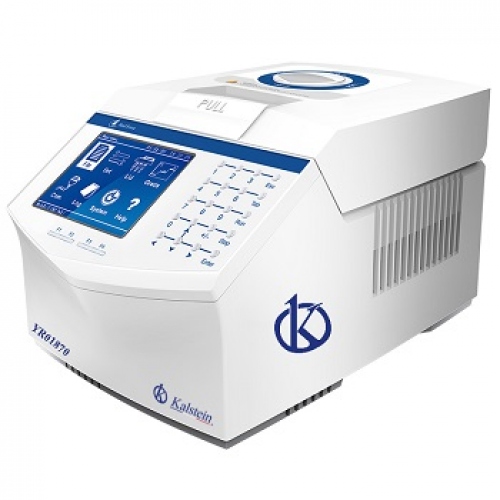Laboratories are dynamic and highly demanding environments, where every process is constantly being optimized to ensure efficiency, accuracy and reliability. Within this landscape, PCR (Polymerase Chain Reaction) thermal cyclers become indispensable tools in the diagnosis and study of various diseases.
To explore in depth the impact of their proper optimization, we will first learn the basics of their operation and then focus attention on their relevant role in laboratory diagnostics.
Essential Operation
These devices enable precise and repeated heating and cooling cycles, which are necessary to perform PCR. This molecular biology technique allows amplification of DNA or RNA fragments for subsequent analysis.
These machines use an aluminum block with the capacity to contain tubes with DNA sample and the reagents necessary for the reaction. They rigorously control the temperature, varying it in stages to denature, align and extend the DNA strand. The latest models of this type of equipment have incorporated advanced temperature control systems, intuitive user interfaces and software that facilitates programming and process monitoring.
Applications of PCR Thermalcyclers in Diagnostic Laboratories
In the diagnostic field, they play a fundamental role. Their applications are innumerable, both in the diagnosis of infectious diseases and in genetics.
They stand out especially in the detection of viruses and bacteria, where they can amplify specific genetic sequences present in the pathogen, offering an unequivocal result of its presence. Relevant cases are the detection of HIV, hepatitis B and C and even the most recent COVID-19 pandemic.
In genetic diagnostics, these devices can identify mutations and chromosomal alterations related to hereditary diseases, such as cystic fibrosis, sickle cell anemia and some cancers.
PCR Thermocycler Process Optimization
Optimization of use involves everything from the design of the experiment to the analysis of the PCR products. The purpose of the experiment must be understood in order to select the right conditions, which includes choosing the correct primers, setting the optimal temperature and reaction time, and selecting a reliable polymerase enzyme.
On the other hand, the technology used by these devices has evolved, allowing significant improvements in their performance. Gradient thermal cyclers, for example, offer rapid optimization of the alignment temperature, one of the most critical steps in PCR.
What we offer you at Kalstein
In summary, to maximize efficiency and effectiveness in laboratory diagnostics, proper operation and optimization of this apparatus is vital. Its proper handling allows you to achieve highly accurate results, essential to understand and diagnose a wide range of health conditions and pathologies. Investing in the knowledge and skills for the correct use and optimization of these tools not only increases productivity, but also the reliability of results, which has a direct impact on achieving accurate and timely diagnoses.
In Kalstein we have a YR series of excellent quality, designed with the highest standards and most advanced technology; and being manufacturers we guarantee the best price in the market; know our models HERE; and you can discern their features and applications and design that best suits your needs and make your purchase. We have the most updated designs of the market and at the best price, the materials with which it is manufactured guarantee the efficiency of the results.

